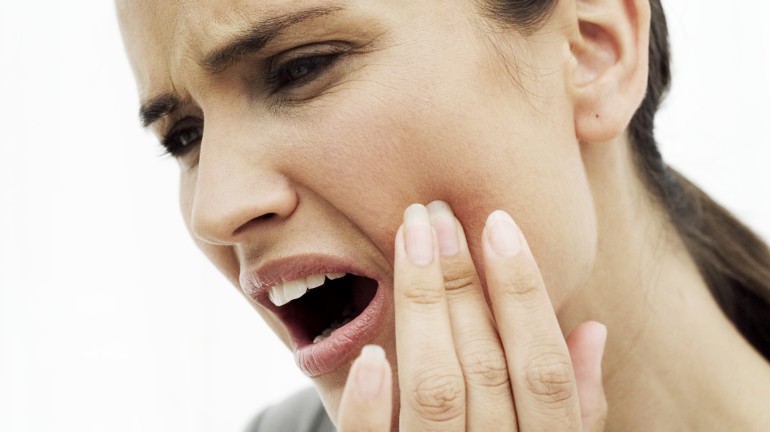Everyone suffers from toothache at some point or another in their lives. Nevertheless, you can’t help but feel that nobody understands your pain and plight when it’s you yourself in agony.
Even when the toothache isn’t particularly severe, it can have a dramatic effect on every aspect of your life. Talking, eating, smiling, sleeping and generally doing anything at all becomes a pain…literally. Worse still, it doesn’t seem to dissipate, but instead lingers continuously and infuriatingly.
Why Do We Get Toothache?
In terms of why it is we get toothache in the first place, how long is a piece of string? There are literally thousands of reasons why a person may develop a sudden or gradual toothache – some of which are more obvious and/or serious than others. Broken teeth, cavities, impact and so on can all result in toothache. So too can exposure to hot or cold temperatures in the case of sensitive teeth, triggering pain with the potential to last hours or even days.
Of course, the most important rule of thumb when it comes to toothache is to ensure it’s nothing serious. If you suffer from a random and isolated bout of toothache that quickly disappears, it’s probably nothing to worry about. If the pain is severe, prolonged or recurrent, chances are there’s something that needs professional attention. In both cases however, you’ll no doubt want to calm the pain as quickly and effectively as possible in the meantime.
Preventative Medicine
Unsurprisingly, the best way to prevent toothache in the first place is to follow the very best oral health and hygiene regime possible. Use a high-quality fluoride toothpaste, the best electric toothbrush recommended by dentists and floss on a regular basis. Those who suffer from sensitive teeth could also try switching to an effective sensitive mouthwash and toothpaste, while at the same time staying away from overly powerful teeth-whitening agents.
Still, if the toothache has already set in, all of the above ships have of course sailed. Which means it’s now a case of doing what you can to calm and soothe your teeth. All manner of weird and wonderful methods can be found online, but as far as dental professionals are concerned, the following represent perhaps the most effective of all:
Salt Water
First and foremost, salt water is just about the easiest treatment for toothache and also has the potential to be surprisingly effective. It’s simply a case of mixing around ½ tsp. of salt with a glass of warm water, before swilling it around your mouth for no more than 10 seconds. During which time you’ll want to do your best not to swallow the nasty stuff! Salt water has a strong and entirely natural antibacterial effect, which can have an immediate beneficial impact on whatever it is in your mouth that’s causing you pain. It can also be repeated on a regular basis with no risk.
Clove Oil
There’s a good chance you’ve used clove oil quite a few times in the past, without even realising it. The reason being that clove oil is used in the formulation of countless oral health and hygiene products. Also known by its more scientific handle of Eugenol, clove oil has impressive antibacterial, anti-inflammatory, antioxidant and mild anaesthetic properties, which can be great for soothing pain and preventing infection at the same time. Always a good product to have around the home. Just in case.
Ice Pack
While it’s never a good idea to place ice directly against your mouth inside or out, it has the potential to be highly effective when dealing with toothache. Simply take a few blocks of ice, place them in a freezer bag and hold them against your cheek around the affected area. The cold temperature will help reduce the pain, without damaging your skin in the process. Of course, if your teeth are already sensitive to hot and cold temperatures, this particular approach is to be avoided at all costs – you’ll only make things worse than they already are!
Spirits
For the record, we’re not condoning reaching for the bottle in the traditional sense, as a means by which to ‘numb’ your toothache. Instead, spirits with a high alcohol content can work as an effective astringent and antiseptic, which can be used to reduce the severity of toothache. The idea being that you take a spirit like vodka or whisky and swill a small amount around your mouth, before spitting it out. Alternatively, use a cotton ball or cotton bud to apply the spirit directly to the affected area.
Aspirin
The most effective OTC painkiller recommended by dentists for the treatment of toothache is traditional aspirin. Just as long as you do not have any specific sensitivities or allergies, occasional use of aspirin – in accordance with the manufacturer’s instructions – can be highly effective. Dissolve the aspirin in water and swallow for quick and effective relief. By contrast, the suggestion that it can be even more effective to place the aspirin directly or around the gum of the affected tooth should be avoided and ignored. The reason being that aspirin tablets have a high concentration of acid, which could cause even more damage to your teeth and gums.
Peppermint Tea
Just as long as you don’t go too crazy with the temperature, peppermint tea can also be highly comforting when dealing with toothache. Its pleasant flavour and warming sensation are accompanied by very mild anaesthetic properties, bringing gentle yet immediate relief to the affected area. Once again, approach this option with care if you already suffer from sensitive teeth.
Cover with Gum
Last but not least, if the pain is being caused by an obvious crack or similar damage, it’s possible to use sugar-free chewing gum to provide temporary relief. Once sufficiently softened, gum can be used to physically cover the offending area and minimise additional pain and discomfort, until you can get it looked at by a professional.
